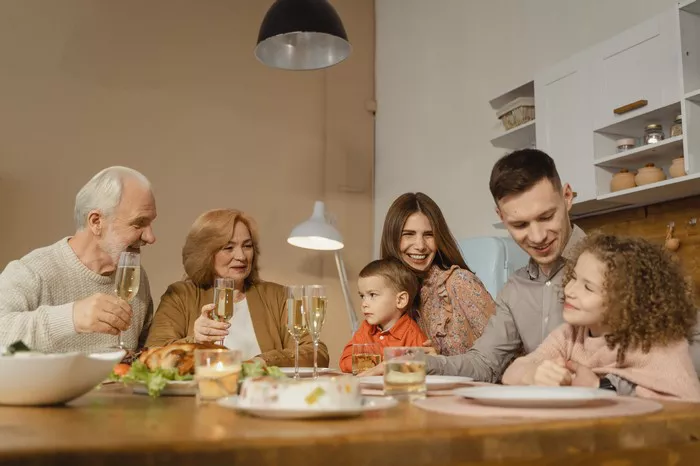The query “Can I get drunk from a cocktail?” often arises among individuals curious about the effects of mixed drinks. Cocktails, known for their diverse flavors and alcohol content, raise questions about the extent to which they can intoxicate individuals. Understanding the dynamics of alcohol consumption, the variables influencing intoxication levels, and the role of cocktails in this process is crucial. Let’s delve into the science and factors at play when assessing the potential for inebriation from imbibing cocktails.
Alcohol Content in Cocktails: Unraveling the Strength
Cocktails, an amalgamation of various alcoholic beverages and mixers, can contain different levels of alcohol content. The alcohol by volume (ABV) in cocktails varies widely based on the types and quantities of spirits used. For instance, a Martini made with gin or vodka generally contains around 30-35% ABV, while a Long Island Iced Tea, comprising multiple spirits like vodka, rum, gin, tequila, and triple sec with mixers, can have an ABV of 22-30%. Understanding the ABV of a cocktail is pivotal in assessing its potential to induce intoxication.
Factors Affecting Intoxication: Beyond Alcohol Content
Beyond just the alcohol content, several factors influence how quickly and intensely one might get drunk from a cocktail. Body weight, metabolism, tolerance to alcohol, food consumption, and drinking pace all play significant roles. Individuals with lower body weight and slower metabolism might feel the effects of alcohol more rapidly than those with higher body weight and faster metabolism. Moreover, drinking on an empty stomach can accelerate alcohol absorption, potentially leading to quicker intoxication.
Mixers and Dilution: Impact on Alcohol Absorption
Mixers, such as juices, sodas, or tonic water, in cocktails not only add flavor but also affect alcohol absorption. Dilution resulting from mixers can slow down the rate of alcohol absorption into the bloodstream. A cocktail with a higher mixer-to-alcohol ratio might take longer to intoxicate compared to a straight spirit. However, it’s essential to note that despite dilution, the overall alcohol content remains unchanged, potentially leading to eventual intoxication.
Variability in Cocktail Strength: Serving Sizes Matter
The size of the cocktail and the portions of alcohol used significantly contribute to its intoxicating potential. Larger cocktails or those served in generous portions contain more alcohol, posing a higher risk of inducing intoxication. Standard drink sizes, like those recommended by health guidelines, contain a certain amount of pure alcohol. Deviating from these standard measures can result in varied alcohol intake and subsequently differing levels of intoxication.
Effects of Mixing Different Spirits: Synergistic Impact
Combining various spirits in cocktails can create a synergistic effect on intoxication. Mixing different types of alcohol may influence how quickly one becomes drunk. Certain combinations could potentially enhance the effects of alcohol, leading to quicker intoxication compared to consuming the same amount of each spirit separately. Understanding these interactions is crucial for individuals concerned about their alcohol intake and its impact on their intoxication levels.
Alcohol Tolerance and Intoxication: Individual Variances
Alcohol tolerance varies greatly among individuals and is influenced by factors such as genetics, regular drinking habits, and previous exposure to alcohol. Someone with higher tolerance might need more cocktails to reach the same level of intoxication as someone with lower tolerance. Regular drinkers might develop a higher tolerance, affecting how quickly they feel the effects of a cocktail compared to occasional or first-time drinkers.
Responsible Drinking and Awareness: Key Considerations
Amidst the discussion of intoxication potential, responsible drinking practices cannot be overstated. Understanding one’s limits, being aware of personal tolerance levels, and pacing alcohol intake are crucial aspects of responsible drinking. Alternating alcoholic beverages with water, eating food alongside drinking, and knowing when to stop are essential strategies to prevent excessive intoxication.
Conclusion
In conclusion, the question, “Can I get drunk from a cocktail?” has multifaceted answers. The alcohol content, mixers, serving sizes, individual factors, and responsible drinking practices collectively determine the extent of intoxication from consuming cocktails. Awareness of these dynamics empowers individuals to make informed decisions regarding alcohol consumption, promoting a safer and more enjoyable drinking experience. Embracing moderation and mindfulness while savoring cocktails is pivotal to ensure a balanced and responsible approach to alcohol consumption.


